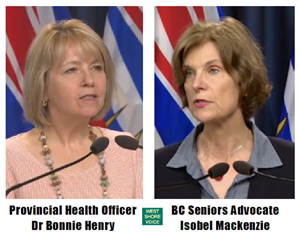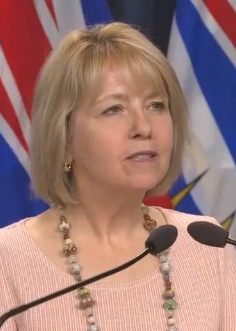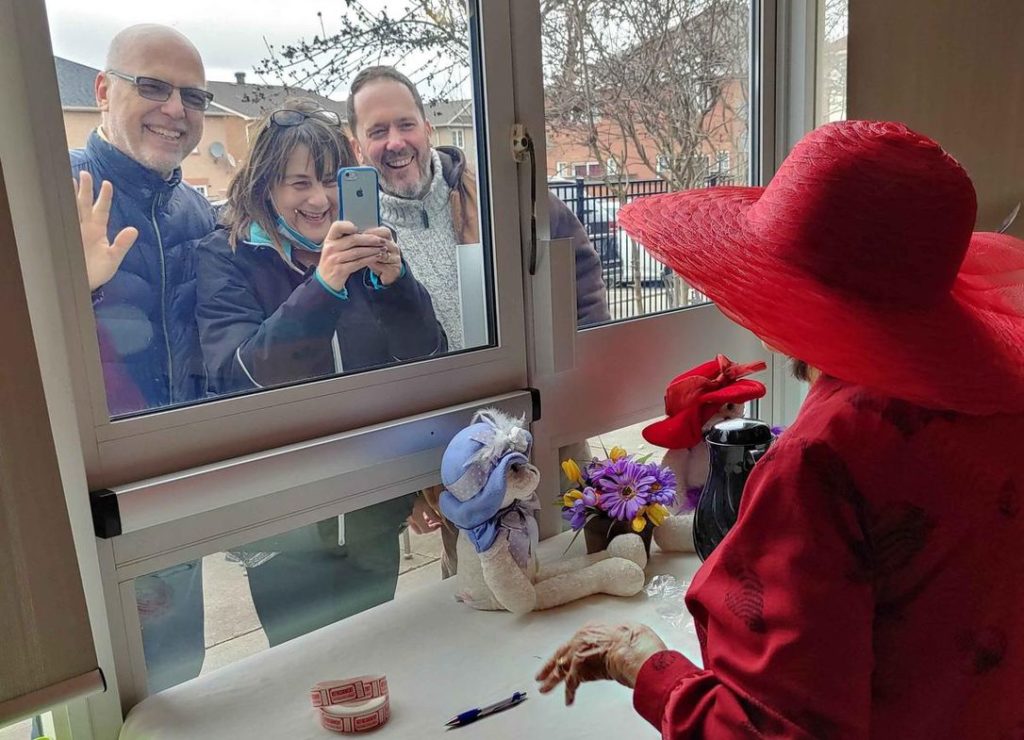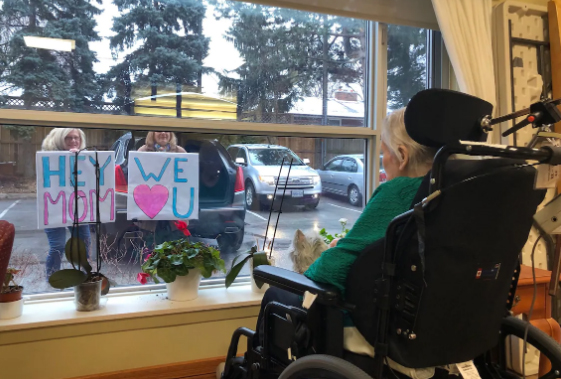
Saturday May 9, 2020 ~ BC
by Mary Brooke ~ West Shore Voice News
Most of the outbreaks, infections and deaths from COVID-19 in BC have been in long-term care, assisted-living, and acute care facilities in BC.
The total number of facility outbreaks for seniors care in BC has reached 24, producing 467 cases (285 residents and 182 staff). Most of the 129 deaths in BC (including two in the last 24 hours) have occurred in long-term care, assisted-living and acute-care facilities. | BC CDC COVID-19 Data

Therefore, understandably, public health protocols are designed to try and protect seniors in those facilities. But the social isolation this produces for families — most particularly as seniors who have died without loved ones at their side — has been painful for families and also for care workers who end up subbing-in for family in the final hours and moment’s of a person in their care.
While all of that is undeniably deeply sad, the long-term mental health costs (such as PTSD in the care workers) is also going to produce further impacts on families as well as increased health care costs.
In recent weeks the emotional and mental health impacts of the isolation of seniors in these homes during the COVID-19 pandemic was highlighted in a news conference on April 26 by BC Seniors Advocate Isobel Mackenzie.
New protocols are being developed:
Today May 9, on the day before Mother’s Day, Provincial Health Officer Dr Bonnie Henry spoke directly to seniors through her daily COVID-19 media briefing. She says that plans are in the works for how in-facility visits by family members can be accomplished, but to wait a bit longer while details are sorted out.

Guidelines “will be coming in the next weeks and days”, Dr Henry said today. She included in her reasoning that each facility has different conditions and situations. “There will be new ways of doing things.”
She cautions and reminds: “As we learn more about this virus, we will find ways for that important social contact and not putting anybody else at risk in that facility. The families who are suffering most through separation, we will be telling you (i.e. facilities and care institutions) how we can best do that.”
“We are working on plans to let families back in to support seniors and elders, so that it’s safe for the whole community in that facility,” Dr Henry said.
Why the protection measures have been strict:
The Provincial Health Officer said she knows “how lonely it can be, how many seniors and elders need to stay in their own cocoon to protect themselves.”

Calling the social isolation factor the ‘nature of this virus’, she acknowledges that the public health response to the COVID-19 pandemic has had “a tremendously negative impact on seniors”. She says the measures for minimal contact have been for the protection of the seniors and their families. Especially if there has been underlying illness or a person is immune compromised.
“This means for now we must continue to have restriction on visitors”, she said about provision of care in long-term care and assisted living facilities.
Dr Henry says she ‘sees’ the outbreaks in long-term care homes and assisted living facilities, and she says public health is “putting measures in place to protect as best we can”.
Seniors who live independently:
To seniors who live independently, Dr Henry says: “Take precautions and see family at a safe distance outdoors. Have important contact even if it’s not physical,” she said with particular reference to Mother’s Day tomorrow.
Seniors who live independently are experiencing higher costs associated with their isolation during COVID-19, such as grocery delivery fees and perhaps having to upgrade technologies for maintaining family contact.


Stories wanted: If you would like to be interviewed about your family experience with COVID-19, please inquire to news@westshorevoicenews.com or phone 250-217-5821.


